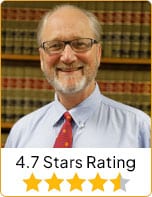How Difficult is it to Prove Undue Influence?
It is very difficult to prove undue influence. What we hope to do, if possible, is to shift the burden of proof. So, in every case, there’s one side that has to prove that they are right and the other side that is presumed to be right from the beginning. In a typical case of undue influence, the victim or the people representing the victim have the burden of proof. They have to show evidence to the court to prove that undue influence has occurred. As we said, that’s very difficult. However, in some circumstances, because of the relationship between the victim and the suspected perpetrator, we can shift that burden of proof to the defendant who is personally suspected of unduly influencing. So, that the defendant has to prove he or she didn’t unduly influence.
In order to do that, we have to show that there was a relationship of trust or dependence involved. For instance, this would be if the benefit was to the victim’s caregiver. That is clearly a position of dependence. The victim is dependent on that caregiver and is more susceptible to undue influence from that person. If it’s the victim’s attorney, the same thing: if there is a presumption that the attorney influenced that person to make a decision from which the attorney benefited.
If we can find some relationship of trust, dependence or reliance on the defendant, the suspected perpetrator, we shift that burden of proof. Then, it becomes a case that the victim has a much better chance of winning.
Is undue influence considered a crime?
It can be, absolutely. The difference between when it is or is not a crime would be whether the undue influence affected the victim immediately or whether it only affected his or her estate plan and the people who would eventually inherit. If it affects the victim immediately, and the defendant causes the victim to give him or her something right now during the victim’s lifetime, that clearly could be the crime of elder abuse, which could be taken to the district attorney and prosecuted. This is also why you want to get Adult Protective Services involved. Adult Protective Services will have the obligation to report this and prosecute this if a crime has occurred.

Can I have my family member or a loved one’s capacity determined if I believe there has been undue influence when making his or her estate planning documents?
That’s a difficult question to answer. You can, generally. However, we’ll talk about this presumption again. A person is presumed to have capacity. So, you would have to get that person agree to go to a doctor to have their capacity determined. If he or she doesn’t agree to do that, we have to somehow get authority to compel him or her to have his or her capacity determined. If it’s a close call where he or she may or may not have capacity and it’s not obvious one way or the other, it can be very difficult because the family members who are concerned for the victim want this person to get tested. But the victim doesn’t want to get tested. He or she is often reluctant because, as you can imagine, being declared to be incapacitated means he or she gives up a lot of his or her autonomy. Of course, the victim doesn’t want to do that. So, it can be very difficult to determine your family member’s or loved one’s capacity.
If you’re convinced that the family member doesn’t have capacity and he or she doesn’t agree to go to a doctor to have it determined, your only recourse would be to initiate a court case called a “Conservatorship.” In a conservatorship, the court would determine, with the help of their investigators, whether or not this family member has capacity and the extent to which they have capacity. These are difficult, time-consuming and expensive to do. But sometimes it’s the only way.
For more information on Estate Planning In California, an initial consultation is your next best step. Get the information and legal answers you are seeking by calling (626) 385-6303 today.

